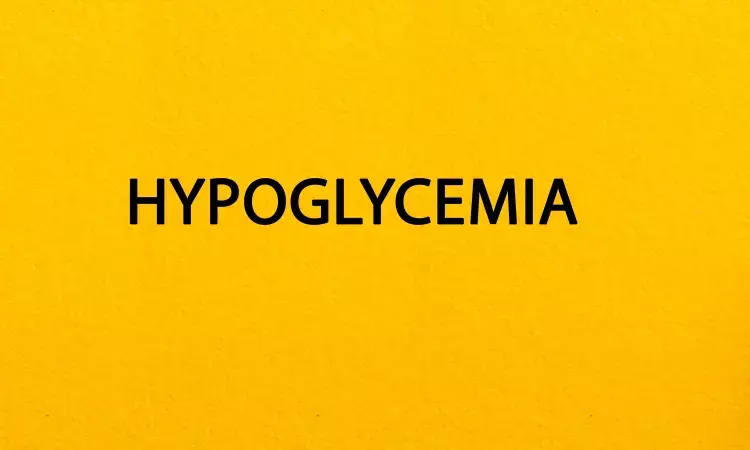- Home
- Medical news & Guidelines
- Anesthesiology
- Cardiology and CTVS
- Critical Care
- Dentistry
- Dermatology
- Diabetes and Endocrinology
- ENT
- Gastroenterology
- Medicine
- Nephrology
- Neurology
- Obstretics-Gynaecology
- Oncology
- Ophthalmology
- Orthopaedics
- Pediatrics-Neonatology
- Psychiatry
- Pulmonology
- Radiology
- Surgery
- Urology
- Laboratory Medicine
- Diet
- Nursing
- Paramedical
- Physiotherapy
- Health news
- Fact Check
- Bone Health Fact Check
- Brain Health Fact Check
- Cancer Related Fact Check
- Child Care Fact Check
- Dental and oral health fact check
- Diabetes and metabolic health fact check
- Diet and Nutrition Fact Check
- Eye and ENT Care Fact Check
- Fitness fact check
- Gut health fact check
- Heart health fact check
- Kidney health fact check
- Medical education fact check
- Men's health fact check
- Respiratory fact check
- Skin and hair care fact check
- Vaccine and Immunization fact check
- Women's health fact check
- AYUSH
- State News
- Andaman and Nicobar Islands
- Andhra Pradesh
- Arunachal Pradesh
- Assam
- Bihar
- Chandigarh
- Chattisgarh
- Dadra and Nagar Haveli
- Daman and Diu
- Delhi
- Goa
- Gujarat
- Haryana
- Himachal Pradesh
- Jammu & Kashmir
- Jharkhand
- Karnataka
- Kerala
- Ladakh
- Lakshadweep
- Madhya Pradesh
- Maharashtra
- Manipur
- Meghalaya
- Mizoram
- Nagaland
- Odisha
- Puducherry
- Punjab
- Rajasthan
- Sikkim
- Tamil Nadu
- Telangana
- Tripura
- Uttar Pradesh
- Uttrakhand
- West Bengal
- Medical Education
- Industry
Frequent episodes of hypoglycemia tied to increased adverse CV events: Study

Hypoglycemia has been linked to increased cardiovascular (CV) events, however there is limited data about frequency of hypoglycemic episodes and CV outcomes.
Researchers have found in a recent study that there is an increased incidence of cardiovascular events in Type 2 Diabetes patients who experience frequent hypoglycemia episodes. The study was published in the journal, " Diabetes" 2020.
Blood sugar is commonly considered too high if it is higher than 130 mg/dl before a meal or higher than 180 mg/dl two hours after food.
At the same time for many people, a fasting blood sugar of 70 milligrams per deciliter (mg/dL), or 3.9 millimoles per liter (mmol/L), or below should serve as an alert for hypoglycemia. Episodes of low blood sugar or Hypoglycemia are linked to complications and need immediate treatment.
For recurring episodes of hypoglycemia, eating frequent small meals throughout the day is a stopgap measure to help prevent blood sugar levels from getting too low.
Hypoglycemia is a condition that occurs in diabetics with poor blood sugar control. It is a marker of the severity of diabetes. It can deteriorate the functioning of health leading to the failing of various systems like respiratory, digestive, and various skin diseases. There is substantial evidence that suggests that Hypoglycemia is associated with increased cardiovascular disease risk. As there is little evidence about the frequency of hypoglycemia and cardiovascular (CV) disease risk, researchers from Cleveland Clinic conducted a study to evaluate the association of frequent hypoglycaemic episodes with incident cardiovascular disease events in adults with type 2 diabetes mellitus.
The researchers collected the required data from the national database for adults with T2DM. They divided the data as cases, who had >5 hypoglycaemic episodes and controls having 1 to 5 hypoglycaemic episodes in one year. Primary outcomes were overall CV adverse events, acute myocardial infarction (MI), cerebrovascular accident (CVA), and cardiac arrhythmias. Odds ratios (OR) and 95% confidence interval (CI) for the OR were calculated for the risk of association between the number of hypoglycaemic episodes and incident CV events.
The key findings of the study were:
• Out of a total of 61,917,780 patients in Explorys, 4,882,710 had T2DM.
• Patients with >5 hypoglycaemic episodes in 1 year (cases) had a higher incident risk of overall CV adverse events when compared to controls.
• In the stratified analysis, patients with frequent hypoglycaemic episodes had a significantly higher incidence of cardiac arrhythmias, acute myocardial infarction, and CVA.
Thus, the researchers concluded that Adults having Type 2 diabetes and frequent hypoglycaemic episodes of >5/year tend to have a higher incidence of adverse CV events.
For further reading, click the following link: https://doi.org/10.2337/db20-161-OR
BDS, MDS
Dr.Niharika Harsha B (BDS,MDS) completed her BDS from Govt Dental College, Hyderabad and MDS from Dr.NTR University of health sciences(Now Kaloji Rao University). She has 4 years of private dental practice and worked for 2 years as Consultant Oral Radiologist at a Dental Imaging Centre in Hyderabad. She worked as Research Assistant and scientific writer in the development of Oral Anti cancer screening device with her seniors. She has a deep intriguing wish in writing highly engaging, captivating and informative medical content for a wider audience. She can be contacted at editorial@medicaldialogues.in.
Dr Kamal Kant Kohli-MBBS, DTCD- a chest specialist with more than 30 years of practice and a flair for writing clinical articles, Dr Kamal Kant Kohli joined Medical Dialogues as a Chief Editor of Medical News. Besides writing articles, as an editor, he proofreads and verifies all the medical content published on Medical Dialogues including those coming from journals, studies,medical conferences,guidelines etc. Email: drkohli@medicaldialogues.in. Contact no. 011-43720751


